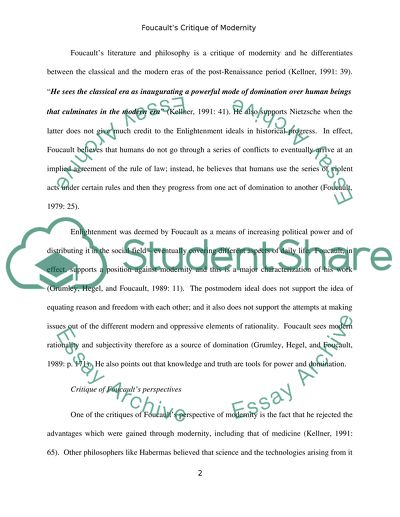Cite this document
(“Outline and assess Foucault's critique of modernity Essay”, n.d.)
Retrieved from https://studentshare.org/environmental-studies/1418350-outline-and-assess-foucault-s-critique-of
Retrieved from https://studentshare.org/environmental-studies/1418350-outline-and-assess-foucault-s-critique-of
(Outline and Assess Foucault'S Critique of Modernity Essay)
https://studentshare.org/environmental-studies/1418350-outline-and-assess-foucault-s-critique-of.
https://studentshare.org/environmental-studies/1418350-outline-and-assess-foucault-s-critique-of.
“Outline and Assess Foucault'S Critique of Modernity Essay”, n.d. https://studentshare.org/environmental-studies/1418350-outline-and-assess-foucault-s-critique-of.


